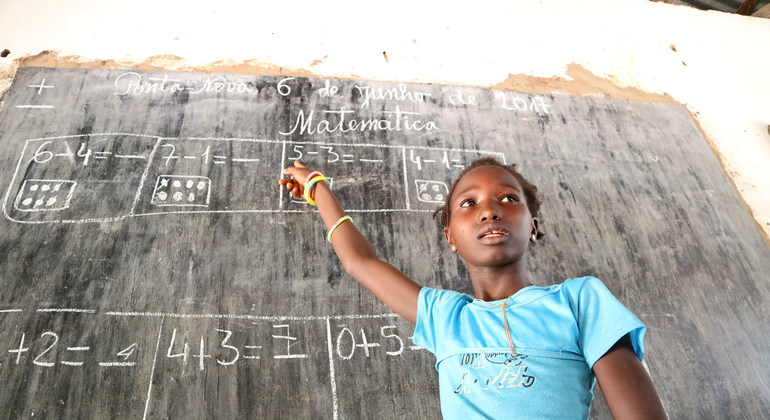“Education transforms lives”, United Nations Secretary-General António Guterres said, recounting his personal story of teaching in “the slums of Lisbon” where he saw first-hand that “education is an engine for poverty eradication and a force for peace”.
At the heart of the SDGs today, education serves as a basis for achieving the other goals, including reducing inequalities; improving health; achieving gender equality; fighting hate speech, xenophobia and intolerance; protecting the planet’s resources and nurturing global citizenship.
Education is a human right, a public good and a public responsibility –UNESCO chief
“Yet”, the UN chief flagged, “at least 262 million children, adolescents and youth are out of school, most of them girls. Millions more who attend school are not mastering the basics”.
Calling it “a violation of their human right to education” he stressed that the world could not afford a generation of youth who lack the necessary skills to compete in the 21st century economy, “nor can we afford to leave behind half of humanity”.
“Let us prioritize education as a public good; support it with cooperation, partnerships and funding; and recognize that leaving no one behind starts with education” concluded the Secretary-General.
For her part, Audrey Azoulay, Director-General of the UN Educational, Scientific and Cultural Organization (UNESCO), called the Day an occasion to “reaffirm fundamental principles”.
“Education is a human right, a public good and a public responsibility” she said, calling it “the most powerful force in our hands to ensure significant improvements in health, to stimulate economic growth, to unlock the potential and innovation we need to build more resilient and sustainable societies”.



